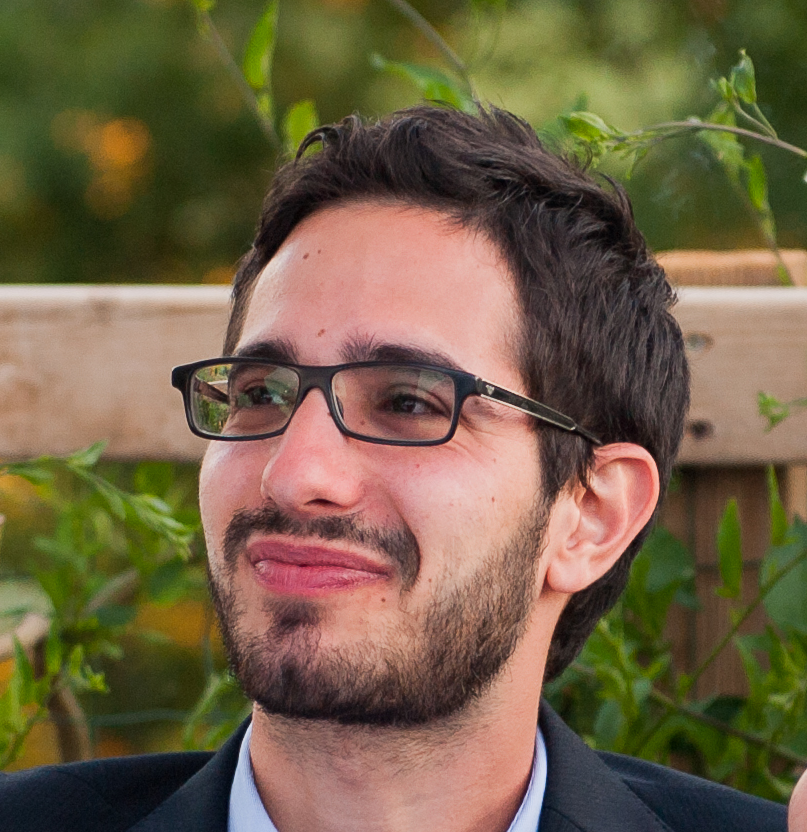Almost 1000 years old, the University of Bologna (UNIBO) is known as the oldest University of the western world. Nowadays, UNIBO still remains one of the most important institutions of higher education across Europe and the second largest university in Italy with 11 Schools, 33 Departments and about 84.000 students; it is organised in a multi-campus structure with 5 operating sites (Bologna, Cesena,Forlì, Ravenna and Rimini), and, since 1998, also a permanent headquarters in Buenos Aires.
With regard to the capability of attracting funding, UNIBO is very active both at National and European level. At European level, with 87,8 million Euros from FP7 and other EU funded programs (274 projects funded in 2007-2013; in 58 of them UNIBO was coordinator) UNIBO is the second Italian university for the attractiveness of European funding for research, 37thin the European ranking of institutions of higher education.In Horizon 2020, UNIBO is involved in 44 funded projects – in 8 of them UNIBO is coordinator – with 14.49 million Euro.UNIBO is also affiliate partner of the EIT KIC “EIT ICT Labs”. At National level UNIBO ranks second for competitive research funding from the Italian Government.
At the University of Bologna, activities related to European funding programs are supported by the European Research and Innovation Office. With about 30 people, organized in 4 thematic units plus another unit specifically devoted to ERC and Marie Curie programs, the office assists research groups in the whole project lifecycle: networking and lobbying, consortium building, proposal preparation, negotiation and project management. The European Research and Innovation Office steadily cooperates with the Knowledge Transfer Office, supporting the IP protection and exploitation, and the take up and commercialization of project results.
With regard to the international reputation, UNIBO has been awarded the use of the logo “HR Excellence in Research” and is among the top 5 Italian universities in the mainInternational rankings,e.g., 2nd Italian university (75th position) in the international QS – World University Rankings of the world best universities; 4th Italian University (201-250th position) int heWorld University Rankings.
The activity of the University of Bologna will be conducted within Department of Computer Science and Engineering (DISI)and the Department of Electrical, Electronic and Information Engineering (DEI). DISI is one of the strongest centres for computer science and engineering research, covering such diverse areas as artificial intelligence, autonomic and complex systems, bio-informatics, middleware systems, networks, programming languages, formal methods, hardware and software systems and their applications in medicine, energy, environment and society, to cite just a few.DEI is one of the largest department in UNIBOs with an excellent research profile,attracting more than 25% of UNIBOs overall EU funding. Within DEI, the research activity of the group in OPRECOMP are carried out by the Energy-Efficient Embedded Systems Lab,covering areas related to compilers,programming models and architectures in the domain of embedded-energy-efficient multi- and many-core systems on a chip.
Contribution to OPRECOMP
For the OPRECOMP project, UNIBO will be involved in the definition of the system architecture which exploits a set of hardware knobs provided at the architectural and circuit levels to tune the transprecision policies of the architecture components (e.g., CPUs, functional units, communication subsystem and memory hierarchy). This will be achieved by providing a full software framework with two main goals:
- hiding the complexity of the transprecision analysis to the final user
- supporting the heterogeneity of the OPRECOMP target platforms that range from low-power mW-scale to high-performance MW-scale computing.
UNIBO will mainly contribute to WP6 where the software environments and tools such as compilers and programming model support, runtime support are developed. In the same WP, machine learning will be used to characterize the application error on the basis of approximation decisions, and optimization techniques will be employed to take off-line and on-line decisions on application allocation, scheduling and approximation.
UNIBO will also work on WP7 by defining some applications and micro-benchmarch and on WP8 by providing system integration solutions demonstrating the effectiveness of the proposed approaches on applications provided by WP7. Smaller contributions will also be provided on WP3 and WP9.
Team

Pr. Michela Milano
Prof Michela Milano has a PhD in Computer Science from the University of Bologna, is associate professor of computer science and artificial intelligence at DISI – UNIBO since Nov. 2001. Her research and teaching records include activities in the area of decision support systems, multi-criteria and stochastic optimisation. In these fields Michela Milano has published more than 140 papers in international conferences and journals and she established collaborations with several research groups, universities and companies. She edited five books on Hybrid Optimisation and Constraint Programming. She is Editor in Chief of the Constraints Journal. She is Area Editor of INFORMS Journal on Computing, Constraint Programming Letters and was member of the Editorial Board of the Constraint International Journal. She is a member of the advisory board of the Optimisation Research Group at NICTA, Australia. She is the coordinator of the FP7 EU ePolicy project (2011-2014) Engineering the Policy Making Life Cycle and partner of a number of FP7 EU projects related to energy, DAREED and COLOMBO, principal investigator of a Google Focused Grant Program on Mathematical Optimisation and Combinatorial Optimisation in Europe on Machine Learning in Combinatorial Optimisations, described above and recipient of a Google Faculty Research Awards, 2016. Michela Milano has been national coordinator of the International Exchange Italia-Quebec on Logistic.

Dr. Davide Rossi
Dr. Davide Rossi received the PhD from the University of Bologna, Italy, in 2012. He has been a post doc researcher in the Department of Electrical, Electronic and Information Engineering “Guglielmo Marconi” at the University of Bologna since 2015, where he currently holds an assistant professor (RTD-A) position. His research interests mainly focus on energy efficient digital architectures in the domain of heterogeneous and reconfigurable multi and many-core systems on a chip. This includes architectures, design implementation strategies, and runtime support to address performance, energy efficiency, and reliability issues of both high end embedded platforms and deeply embedded, ultra-low-power computing platforms. In this field he has published more than 30 paper in international peer-reviewed conferences and journals. He has collaborated with several international research institutes (e.g. CEA, EPFL, Tampere University of Technology) and companies (e.g. STMicroelectronics, NXP, Samsung).
For the OPRECOMP project, Davide Rossi will be involved in the definition of the system architecture which exploits a set of hardware knobs provided at the architectural and circuit levels to tune the transprecision policies of the architecture components (e.g., CPUs, functional units, communication subsystem and memory hierarchy). This will be achieved by providing a full software framework with two main goals, (i) hiding the complexity of the transprecision analysis to the final user and (ii) supporting the heterogeneity of the OPRECOMP target platforms that range from low-power mW-scale to high-performance MW-scale computing. In particular, he will contribute to WP5 where the software environments and tools such as compilers and programming model support, runtime support. A big effort will also be devoted on WP8 by providing system integration solutions demonstrating the effectiveness of the proposed approaches on applications provided by WP7. Smaller contributions will also be provided on WP3 and WP9.

Dr. Michele Lombardi
Michele Lombardi is a a fixed-term assistant professor at University of Bologna. He is working on the integration of heterogeneous techniques for Combinatorial Optimisation. His expertise is on Constraint Programming, Integer Linear Programming and Machine Learning, with main applications on resource allocation and scheduling problems, and on price-scheme definition in the energy market. Michele has a PhD in Electrical, Computer and Telecommunications Engineering.
He received the AI*IA “Marco Cadoli” PhD award in 2010, and honorable mentions at the CP 2011 and ICAPS 2012 PhD awards. He has been a visiting researcher at EPFL, Cornell University, and the Université Catholique de Louvain. He has been a reviewer for international journals, program committee member for international conferences, and a speaker at the invitation-only International Symposium on Mathematical Programming in 2012 and 2015.
He has co-chaired two doctoral programmes, a summer school con Constraint Programming, and an international workshop. He contributed to the FP7 projects “ePolicy”, “Therminator” and “Predator”, to the FP7 ERC “Multitherman”, to the JTI ARTEMIS “SMECY” and to the Google Focused Grant “Model Learning in Combinatorial Optimisation: a Case Study on Thermal Aware Dispatching”. He is currently contributing the FP7 project DAREED, on decision support systems for the energy market at district scale.Michele is involved in the OPRECOMP project as an academic researcher, working on combinatorial optimisation and machine learning.

Giuseppe Tagliavini
Giuseppe is involved in the OPRECOMP project as an academic researcher, working on software environments and tools which include programming model abstractions, compiler extensions and runtime support for trans-precision computing. He will mainly contribute to WP6, with minor involvement in other WPs.

Andrea Borghesi
Andrea Borghesi is currently a Post-Doctoral researcher and Adjunct Professor at the Department of Computer Science and Engineering (DISI) of the University of Bologna, Italy. He received his PhD in Computer Science and Engineering at the same university in 2017. His research interests range broadly in the area of Artificial Intelligence, including Optimization, Power-awareness and Anomaly Detection in HPC systems, Scheduling and Allocation, Transprecision Computing, Machine and Deep Learning and Constraint Programming.
His activity within the OPRECOMP project: “Andrea Borghesi is working in the following areas concerning transprecision computing and the OPRECOMP project:
- Optimization methods to find the best trade-off between result accuracy and precision level assigned to the FP variables of a program.
- Machine Learning and Deep Learning approaches to create predictive and classification models embedding the relation between the quality of the outcome of an application and the precision of its variables.
- Techniques to integrate the optimization algorithms with the predictive models in order to improve the quality of the solutions found (for instance, following the Empirical Model Learning, EML, methodology).
- Integrate the proposed techniques within a larger compilation framework for transprecise applications.

Dr. Andrea Marongiu
He received the PhD degree in electronic engineering from the University of Bologna, Italy, in 2010. He has been a postdoc researcher in the Department of Electrical Engineering and Computer Science (DEI) at the University of Bologna since then, and currently holds a postdoc position at ETH Zurich (D-ITET). His research interests focus on programming models and architectures in the domain of heterogeneous multi- and many-core systems on a chip. This includes programming model, compiler and runtime support to efficiently address performance, energy and reliability issues in parallel embedded systems, as well as HW-SW co-design of accelerator-based MPSoCs. In this field, he has published more than 50 papers in international peer-reviewed conferences and journals. He has collaborated with several international research institutes (Penn State University, INRIA, Brown University, UCSD) and companies (Freescale Semiconductors, STMicroelectronics).
He’s now working for the OPRECOMP project as an external collaborator.



